- Administrator
- Albums and Singles
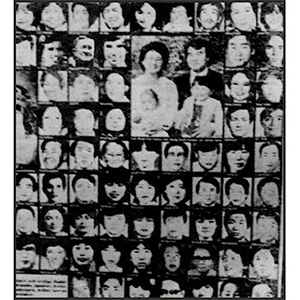 The New Crimes is a dense, imposing boxed set in the way that legendary noise collections such as Ramleh's Awake and Sutcliffe Jugend's We Spit on Their Graves are. Previously released in 1995 in an edition of 10, this material obviously did not receive significant exposure. Murder Corporation might not be amongst the most well known of Italian noise artists, which is a shame given the diversity contained on these eight discs. However, the brown and murky, analog heavy lo-fi sound is one that can at times be impenetrable and oppressive. Though daunting, the varying approaches Moreno Daldosso uses in composition result in a diverse, yet still bleak and violent piece of art.
The New Crimes is a dense, imposing boxed set in the way that legendary noise collections such as Ramleh's Awake and Sutcliffe Jugend's We Spit on Their Graves are. Previously released in 1995 in an edition of 10, this material obviously did not receive significant exposure. Murder Corporation might not be amongst the most well known of Italian noise artists, which is a shame given the diversity contained on these eight discs. However, the brown and murky, analog heavy lo-fi sound is one that can at times be impenetrable and oppressive. Though daunting, the varying approaches Moreno Daldosso uses in composition result in a diverse, yet still bleak and violent piece of art.
MC's Moreno Daldosso has produced a body of work that fits in the dour, brown and grey morass that Atrax Morgue and Mauthausen Orchestra are known for, as is the scene's still active innovator Maurizio Bianchi.Murder Corporation stands out though, because while his work has the same bleak depressive sounds and fascination with death, there is more of a sense of anger in his work.This aggression and the related imagery give off a distinct parallel with gory slasher films, in the sense that there is enough self-awareness to not completely come across as the work of someone who is truly mentally disturbed.This violent sound does not feature throughout all eight hours of this set, but the detailed explosions of "Cannibal House" are less depressive and more aggressive.At the same time, "Abrasive Collective" has him emphasizing piercing, ringing type noises that resemble the most violent moments of a giallo soundtrack looped for four unrelenting minutes.
That is not to say that Daldosso creates purely violent sounds, however."Mutilated Corpse" immediately leads off with nauseous, pitch wobbling electronics and a rushing water like passage of noise that resembles some of Atrax Morgue's sickest work."Bleeding Face" has him employing more synthesizer like sounds, and with the punctuated moments of silence it is a bit less intense.His work, however, also strays into fields that would be more fitting for an experimental avant garde electronic album."Strangulated" focuses on distorted, yet wet sounding electronics are harsh yet more complex and distinct in nature, rather than a monochromatic blast."Rotary Pt. 1" is similar:it is clearly overdriven electronics but again drenched in its own unnatural sounding reverb to give an overall more idiosyncratic sound.
Vocals and rhythms also make a few, though successful appearances throughout this box set.On "Deathtime" they take the form of a human voice loop, pitch shifted and layered throughout the piece’s duration.By the end it is a crushing, intense wall of noise that sounds nothing like it began.On "Sucker" Daldosso employs more traditionally shouted vocals, but like his Italian contemporaries, they are so extremely distorted and processed to be anything but intelligible."Detention" and "Electrosex" both have him utilizing what sounds like a drum machine or sampler to generate crunchy, noise-laden rhythms that bounce between standard drum sounds and massive passages of distortion.
It is not at all surprising that an artist named Murder Corporation would have created such a desolate and depressing work, but the variation and depth belies the seemingly monochromatic subject matter.The New Crimes is a surprisingly diverse, yet harsh electronic collection that may be predictable in its approach, but the actual music covers the gamut of styles to keep it engaging.All eight discs in a row may be a bit too much, but Daldosso keeps the sound fresh and dynamic even over long stretches of the material.
samples:
 
Read More
- Administrator
- Albums and Singles
 In a perfect world, an artist of Amara Touré’s caliber would need no introduction at all, but the real world is weird and mysterious enough to definitely warrant one in this case, so here it is: Touré’s innovative, sensuous, and sexy Cuban-influenced grooves basically ruled the nightlife in Cameroon and Senegal for roughly two decades, but he only recorded a handful of songs and then disappeared without a trace around 1980.  This collection compiles all of his known singles as well as his sole album and it is all great.  To my ears, this is a lock for the most crucial reissue of the year.
In a perfect world, an artist of Amara Touré’s caliber would need no introduction at all, but the real world is weird and mysterious enough to definitely warrant one in this case, so here it is: Touré’s innovative, sensuous, and sexy Cuban-influenced grooves basically ruled the nightlife in Cameroon and Senegal for roughly two decades, but he only recorded a handful of songs and then disappeared without a trace around 1980.  This collection compiles all of his known singles as well as his sole album and it is all great.  To my ears, this is a lock for the most crucial reissue of the year.
The album kicks off with the only piece that most listeners are likely to have heard before: the smoky and slinky "N'Niyo," which surfaced on Honest Jon’s 2009 Africa Boogaloo collection.  Its original release date appears to be unknown, but it was recorded with The Black and White Ensemble in Cameroon sometime between 1973 and 1976.  Despite being one of his earliest releases, it is nonetheless a strong contender for Touré’s finest song.  If not, it still certainly exhibits all of characteristics that make Amara's work such a singular pleasure: a slow, lazily sexy Latin groove; smoky saxophone; spidery guitars; punchy horn stabs; strong hooks; and his own distinctively passionate and sadness-tinged vocals.  Notably, Touré was a vocalist/percussionist, so I would expect those to be the strongest aspects of his work, but the details that I actually like the most are the intricate, clean guitars and the wounded, lovesick-sounding horns.  Those details work, however, precisely because Touré had such a brilliantly intuitive grasp of mood and pace as a bandleader, avoiding all of the usual pitfalls of the era in favor of a stylish, understated, and deeply sensual aesthetic.
The rest of Touré’s work with The Black and White Ensemble (they recorded a total of three singles together) basically sticks to the same vein of smoldering, Latin-tinged sex music with a similarly consistent degree of success.  There are, however, some shades of mood that differentiate the six pieces.  "Temedy," for example, is a bit more funky and driving, while "Fatou" is a bit more breezy and tropical-feeling.  The only truly significant divergence is "N'ga Digne M’be," which sounds deeply indebted to America soul ballads of the era, which arguably makes it the weakest piece on the album.  I still like it, but it is primarily a vocal showcase, completely eschewing the Latin-influence and propulsive grooves that characterize Touré's best work.  The remaining pieces, however, ably fill that void (particularly "Lamento Cubano").
The final four songs are all culled from Touré's sole album, released in 1980 with Gabon's Orchestre Massako as his backing band.  Unsurprisingly, they are all wonderful as well, but they are a bit more muscular, adventurous, and urgent than Amara's earlier work.  They are also a lot more raw, sound-quality-wise, which I actually like (these pieces feel more "live" and immediate).  The best of the bunch by a landslide is "Salamouti," which boasts a wonderfully staccato and stumbling descending melody.  "Tela" is yet another stand-out due to its thick, lazily lagging bass line, but it is the closing "Africa" that is most attention-grabbing, as Orchestre Massako embellishes their funky, sinuous grooves with unexpectedly flanged and spacy guitars.
Overall, "Salamouti" is probably Amara's finest single moment, but I otherwise prefer his more sensuous and distinctive early singles to his full-length.  That said, Touré's voice and songwriting remained as strong as ever until the very end–I just happen to prefer my classic African music to be more Cuban-influenced and laid-back.  In any case, Analog Africa did a characteristically amazing job with this release, which is no small feat since the artist in question has not been seen in over 30 years and no one knows whether he is alive or dead.  To his credit, Samy Ben Redjeb found several associated musicians to interview and compiled a fairly comprehensive biography of a genuine enigma.  I wish that there had been more recordings to find: Touré's entire 10-year run with Le Star Band de Dakar as Senegal’s hottest nightclub musician (1958-1968) is entirely undocumented (recording studios were a tragic rarity in Africa back then).  Still, I will happily take what I can get: this is an essential release for anyone interested in African music and one of the true jewels of Analog Africa’s discography (alongside Diablos Del Ritmo, of course).
 
Read More
- Administrator
- Albums and Singles
Also, ex-VTB member Nick Mott has a great new CD released on Lumberton Trading Company. The album is called 'Here Begins The Great Destroyer'.
Read More
- Administrator
- Albums and Singles
After a string of Natural Snow Buildings reissues, each more elaborate (um, longer) then the last, Ba Da Bing presents our first ever release of NEW material from the band. For a group known for its use of horror imagery and lyricism, perhaps the most shocking thing of all is that this album clocks in at just under 45 minutes. If there ever was an album that served as the proper entry point for Natural Snow Buildings, Terror's Horns is it.
It would be a stretch to call this Mehdi Ameziane and Solange Gularte's pop record, for Terror's Horns continues in the duo's tradition of combining many layers into sometimes blissful, sometimes contemplative, often menacing conditions. Stringed instruments trill, percussion gongs, feedback hisses and vocals maintain near monotone as if in a cultish trance. The songs still pride themselves on a slow development, and the album's progression lends the impression of descending down through the depths, past hidden cavities and chambers that you will never unsee once experienced. Featuring new artwork by Gularte which pays tribute to the backwoods horror of massacres involving chainsaws.
More information can be found here.
Read More
- Administrator
- Albums and Singles
The end of 2013 saw the reformation of one of the most revered and respected late '80s UK alternative bands, LOOP. The group, founded by Robert Hampson, hadn't played together since the early '90s, but got together to curate a night at the legendary All Tomorrow's Parties at Camber Sands. US dates followed in 2014 and they then got back in the studio to start recording. The result is three brand new releases coming over the next year which see the band return to their hugely unique and era-defining sound whilst sounding fresh and exciting.
The first release is Array 1, four tracks and 32 mins of haunting, aggressive, beautiful noise. "Precession," "Aphelion," "Coma" and "Radial" are the first songs to be heard from their recording session done in Sub Station Studios in Rosyth in Scotland with the current line-up of Robert Hampson (vocals/guitar), Hugo Morgan (bass), Wayne Maskell (drums) and Dan Boyd (guitar). With only an early version of "Precession" having had any previous outing (at a show at the Garage in London at the end of 2014), this is the very first new music from the band since their third album, 1990’s lost classic A Gilded Eternity.
The next tracks will be released in the autumn in keeping with Loop's previous habit of putting out music in batches: Hampson describes it as "one project, with the same concept, delivered in bulletins."
More information can be found here.

Read More
- Administrator
- Albums and Singles
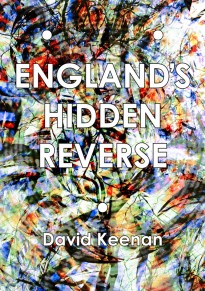
England's Hidden Reverse: A Secret History of the Esoteric Underground
by David Keenan
Revised & expanded edition
336 pages, hardback/paperback, 210mm x 148mm
Fully illustrated in colour.
* Full colour throughout
* Two new chapters and a significant number of new images
* Cover by Mark Titchner
Hardcover edition also includes:
FURFUR:
120-page A5 zine with all new, exclusive interviews and imagery from more provocateurs of the EHR universe: including Alex Binnie, Antal Nemeth, Chris Carter, Colin Potter, Cosey Fanni Tutti, Drew McDowall, Ivan Pavlov, Jill Westwood, Jordi Valls, Matthew Levi Stevens, Paul Hurst and Christine Glover of Produktion, Robin Rimbaud and more TBC.
More information can be found here.
Read More
- Administrator
- Albums and Singles

With a quiet intensity over the last 12 years, Strategy has proven himself to be an incredibly resourceful and rewarding musician in both group settings and as a solo artist. In the latter guise, this Portland producer/multi-instrumentalist (aka Paul Dickow) has released a prolific amount of excellent work for quality indie labels such as Kranky, Orac, 100% Silk, Endless Flight, and Entr'acte, putting a cerebral yet sensual spin on dub, ambient, post rock, and house music.
For his Further Records debut, Noise Tape Self, Strategy delves ever deeper into his more ambient inclinations and experiments with tape loops. Most of the six tracks bear titles more suited for a library record, but Noise Tape Self lacks library music's faceless functionality; rather, it's an immersive soundtrack to stimulating one's imagination or losing one's bearings. Dickow says he became obsessed with making tape music in 2008, after tiring of using the computer as his main instrument. Fellow Portland producer/ingenious gear-tinkerer David Chandler (Solenoid) taught Dickow “how to make a tape loop that could be put inside a cassette tape. I got really into this, and got a 4 track, knowing this would allow me to have four synchronized loops per tape. I would then run each channel through a series of effects and 'perform' live mixes using the loops. I alternated between using source material of my own devising and using whatever source material happened to be on the cassettes I was hacking.”
Noise Tape Self kicks off with "Awesome Piano," in which a fragment of a beautiful piano motif gets overwhelmed by a glorious vortex of static and distortion. We're immediately submerged in Strategy's alluring and disorienting world, where rupture and rapture converge. "Cassette Loop" is a gorgeous ambient piece with a lulling, aquatic quality that recalls such masters of uneasy listening as Rapoon, O Yuki Conjugate, and Aube. The self-descriptive "Ominous Lovely Piano" is a ghostly, microcosmic form of dub, an ultimate kind of headphone music of deep psychedelic interiority that's reminiscent of Paul Schütze's 1996 masterpiece, Apart. The hypnotic/amniotic ambience of "Lovely Loop" whispers of a peaceful eternity; this track could be an important step toward a new, improved strain of New Age. The album closes with "Rhen's Loop"; here's where the album really soars into the stratosphere and grows surreal wings. A five-dimensional headfuck of what sounds like analog-synth growls and whirs and desolate drones, "Rhen's Loop" is Doppler-effected and disorienting, like a more somber take on Conrad Schnitzler's Ballet Statique. With Noise Tape Self, Strategy has found a way to build works of compelling, intimate grandeur with some of the humblest of sonic atoms. It's an alchemical wonder.
More information can be found here.
Read More
- Administrator
- Albums and Singles

A record of slowly evolving beauty that gradually unravels its meditative design. Recorded in Norwegian sculptor and painter Emanuel Vigeland' s (1875 -1948) mausoleum in Oslo in 2013. A recording space that is famous for its acoustics and its long and full-sounding reverb. These three tracks utilize both the delicacy and the power of acoustic instruments and human voice in relation to the unique recording space. This is a record that is otherworldly and eerie but also with a great primal expressive force. Performed by four artists from different backgrounds coming together to create this singular set of music.
- Beneath The Bough (13:03)
- The Green Flood (18:57)
- Afterglow (30:31)
Maja S.K. Ratkje - Voice and Bells
Jon Wesseltoft - Accordion Organ and Harmonium
Camille Norment - Glass Armonica
Per Gisle Galåen - Zither and Harmonium
More information can be found here.
Read More
- Administrator
- Albums and Singles
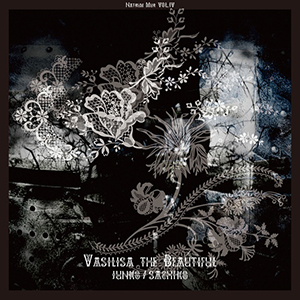 Initially I was not sure what to expect from this pairing. I know Sachiko's solo work can be a varying mix of beauty and ugly, and Junko via Hijokaidan, which is always intensely, yet brilliantly abrasive. On Vasilisa the Beautiful, harshness is the clear winner. Two vocal performances of raw throated dissonance over a bed of electronics, recorded live, makes for anything but an easy album to listen to.
Initially I was not sure what to expect from this pairing. I know Sachiko's solo work can be a varying mix of beauty and ugly, and Junko via Hijokaidan, which is always intensely, yet brilliantly abrasive. On Vasilisa the Beautiful, harshness is the clear winner. Two vocal performances of raw throated dissonance over a bed of electronics, recorded live, makes for anything but an easy album to listen to.
Right from the opening moments the duo are on attack.Shrill vocals, mostly dry from Junko and treated from Sachiko, are brought up loud in the mix.Behind the voice is a guttural passage of electronics, unspecific in their origin but trudging along like a dying animal.The vocals shift from harsh screams to babbling noise, all the while the background noise grinds away harshly.
While the vocals stay rather consistent, the electronics are dynamic, shifting register and character.At times the backing sounds like a broken synthesizer, at others a heavily distorted guitar.When the noise is at its most dense, and the vocals firmly locked into screaming mode, I definitely felt parallels with the early/mid 1990s era of Hijokaidan.
Towards the middle of the piece the background shifts into a great, churning mechanical noise din, before transforming into a massive locust swarm buzz.With a great balance between the electronics and the voice, which has become a cracking, dry throated serrated knife.Dive-bombing tones and ringing electronics continue relentlessly, keeping everything harsh.
In its closing minutes, the electronics go even darker and more bleak, as the vocals finally scale back, ending the piece with what sounds like processed and treated dialog, rather than the non-stop screaming that preceded it.Make no mistake; Vasilisa the Beautiful is a difficult album.Anyone familiar with Junko's performances with Hijokaidan should know exactly what to expect.Just like that material, however, there are times where this sort of unabashed chaos and dissonance is simply the perfect album.
samples:
 
Read More
- Administrator
- Albums and Singles
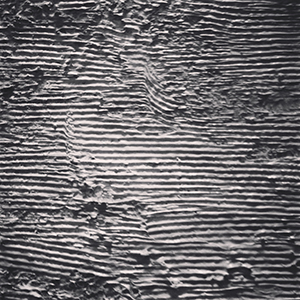 With these two near-simultaneous releases, Joao Da Silva's Luciernaga takes two different approaches to his not quite noise, not quite musical. To the Centre of the City in the Night is the more fleshed out release, with its five pieces running the gamut from bowed string drones to harsher electronics. Tile II, a follow up to the similarly titled release from last year is more immediate, which is fitting a super-limited tape and free digital release. They are two sides of the same coin, with both being enthralling in their own ways.
With these two near-simultaneous releases, Joao Da Silva's Luciernaga takes two different approaches to his not quite noise, not quite musical. To the Centre of the City in the Night is the more fleshed out release, with its five pieces running the gamut from bowed string drones to harsher electronics. Tile II, a follow up to the similarly titled release from last year is more immediate, which is fitting a super-limited tape and free digital release. They are two sides of the same coin, with both being enthralling in their own ways.
Invisible City Records/Idle Chatter
To the Centre is the more album-like of these two releases, in that it feels as if these pieces were more carefully constructed and composed over a longer period of time.Using only synth, guitar, and his voice, Da Silva creates dynamic and multi-layered pieces that are constructed and deconstructed throughout."A Blue Light" features droning tones paired with shimmering electronics and a hint of noise.There is a progression from purer sounds at the beginning into fragmented and decaying passages towards its end.There was a hint of darkness to that piece, but "Sleeping Green-Eyed Girl" is almost all-peaceful beauty.Loops and beautiful drones make for a dynamic song, but in a calm and placid mood.Even though it is heavily drawn from from electronic sources, it has an extensively organic sound, resembling a living and breathing organism.
The other half of To the Centre is a darker affair.Deep synth and squalling guitar set a darker, menacing mood to "Cold was the Night".With all its scraping and gliding noises, it is the sonic equivalent of a serpent slithering through metal wreckage and barbed wire.The lengthy "Elevated" might not be quite as sinister, but is no less intense.A more hypnotic, loop heavy piece with messy outbursts to keep the sound from becoming too stagnant, Da Silva uses the extended duration to build the piece and allow a bit of light to shine through the otherwise dark haze.
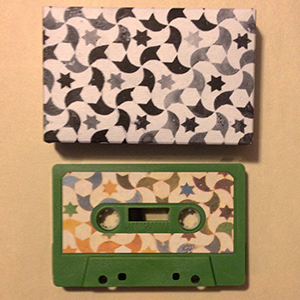 Tile II, on the other hand, comes together as a more immediate, almost improvised sounding work in that the pieces are more sparse, but also have their own minimalist charm.The chiming singing bowl that opens "Mourning Raga", mixed with a harmonium-like drone has a simple, yet meditative quality to it.The two part "Serpentine" sees Da Silva emphasizing clean guitar over what sounds like a slowly changing and evolving loop.The mix may be simple, but the sound is extremely complex.The second part uses a more primal guitar sound that adds dissonance to the overall sound.Like its predecessor, the second side of the tape is a single loop played for nearly 15 minutes with enough complexity to be hypnotic without being overly repetitive.
Tile II, on the other hand, comes together as a more immediate, almost improvised sounding work in that the pieces are more sparse, but also have their own minimalist charm.The chiming singing bowl that opens "Mourning Raga", mixed with a harmonium-like drone has a simple, yet meditative quality to it.The two part "Serpentine" sees Da Silva emphasizing clean guitar over what sounds like a slowly changing and evolving loop.The mix may be simple, but the sound is extremely complex.The second part uses a more primal guitar sound that adds dissonance to the overall sound.Like its predecessor, the second side of the tape is a single loop played for nearly 15 minutes with enough complexity to be hypnotic without being overly repetitive.
Both sides of the Luciernaga sound captured on these tapes complement each other extremely well, and I could not choose one as superior to the other.The more composed sound of To the Centre captivates with the constantly shifting mix and varying dynamic, with each listen revealing an additional layer of depth.At the same time, Tile II’s minimalist, almost live sound has a distinct purity and clarity that hits all the right buttons.Either way, both are exceptional and Da Silva is an artist who continues to impress me with each new release I hear.
samples:
 
Read More
- Administrator
- Albums and Singles

September 2015 will see the release of Thighpaulsandra's 7th full length album The Golden Communion, his first since 2006's The Lepore Extrusion. Well over a decade in the making, this is his debut for Editions Mego. It comprises 10 new songs, running well over two hours with individual pieces clocking in between 4 and 28 minutes. Featured musicians on the album include regular collaborators Martin Schellard and Sion Orgon, plus the odd guest/ghost from bands Thighpaulsandra has worked with in the past.
If you have heard any of Thighpaulsandra's previous albums, you will know that you'd best approach this record with no fixed set of expectations, because once again he changes genres and defies easy classification, sometimes more than once within one song. Drawing on his long-time background as a key member in such diverse groups as Coil, Spiritualized and Julian Cope's band (in each case arguably at the height of their creative prowess) and his work as producer and sound engineer for an even larger variety of customers, you'll find classical passages next to hard rock riffing, krauty experimental work-outs turning into super catchy, almost radio-friendly songs and more.
Many adjectives have been used to describe Thighpaulsandra’s work: epic, challenging, timeless, idiosyncratic, but certainly never predictable or boring.
Possibly his most rewarding album yet and a welcome and unusual entry, in the Mego catalogue, which will entertain and astonish listeners who are fond of having their mind severely altered by sound.
More information can be found here.
Read More

